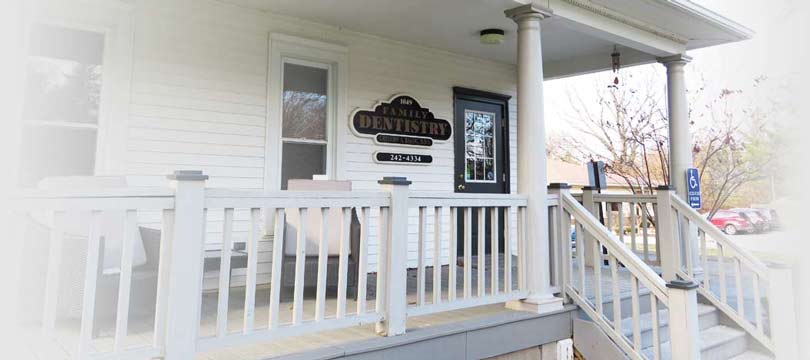
A dental crown is simply a cap that is placed on top of a damaged tooth. Those who get dental crowns often have a large cavity, a cracked tooth, or a weakened tooth. It’s also common to have a dental crown procedure after a root canal due to how fragile the tooth becomes.
Dental Crown Procedure
There are two ways this procedure is done. The traditional way is a multi-day procedure, completed in 2 visits, that includes the addition of a temporary crown. The second is a same-day procedure. While each dental office may have their own unique steps. Here are the basics for each procedure:
Multi-day
- Your dentist will thoroughly examine the tooth. They will then prepare the tooth that needs a dental crown. Much of this might include x-rays and dental molds.
- The tooth at question will be filled. Part of the tooth’s outer layer must be removed for proper crown placement.
- Your dentist will make a small impression of the newly filled tooth and the surrounding teeth.
- A temporary crown will be placed over your tooth for protection purposes.
- The impression taken is sent to a lab where the custom crown is made. This step can take weeks.
- Once the custom crown is in, you will come in for a second visit and final step. The dentist is now ready to cement the crown to your damaged tooth. When the crown comes in, you’ll return for the second visit, so your dentist can cement the crown to your tooth.
Same-day
- Digital imaging is done of your mouth
- Utilizing a digital scan from the imaging, your dentist is able to create the custom crown right there and then. Know that there may be a 1-2 hour wait time until the crown is ready.
- Once ready, the dentist cements the fresh crown onto the damaged Once the crown is ready, your dentist cements it into place. The entire process takes about 2 to 4 hours.
Keep in mind, not all dentists have the necessary technology in order to perform a same day procedure.
Not all dentists have the technology to make same-day crowns. Ask your dentist if this option is available and the estimated cost, especially if you don’t have dental insurance.
Types of Dental Crowns
The cap can be made from different types of materials. Here’s are the different types:
- porcelain
- zirconia
- ceramic
- composite resin
- metal
- combination (two or more materials
Choosing the proper type for your needs and situation is very important. Your dentist should consider where the tooth is located, how much of it is visible during smiling, the function of the specific tooth, what’s left of the tooth, and the color. All these factors included will ensure you are getting the type you need.
Dental Crown Cost
The cost can vary between dentists and also vary based on the material of the crown. Cost can range roughly between $800 to $1,500, in some cases more, according to Cleveland Clinic. Full gold crowns can near as much as $2,500. Gold crowns are less common today.
Additional charges can be added if more extensive work needs to be completed based on your situation. But, part or all of your procedure(s may be covered if you have dental insurance. See your plan benefits to learn more
Care
To prolong the life of your dental crown, you’ll want to put some effort into taking care of it. Avoid chewing hard objects and/or candy. Also, you can get a bite guard if you tend to clench your jaw in the nighttime. Finally, be sure to wear a mouthguard when playing recreational sports. If you have any concerns about your crown contact your dentist immediately.
Conclusion
If your tooth is damaged beyond an easy filling repair, your dentist may recommend a dental crown procedure. It’s important to have a proper consultation. Your care should be catered to your specific situation and needs. Request an appointment with our office today!
Want an alternative? In some cases veneers can be proper alternatives to dental crowns, learn more here.

 Request an Appointment
Request an Appointment